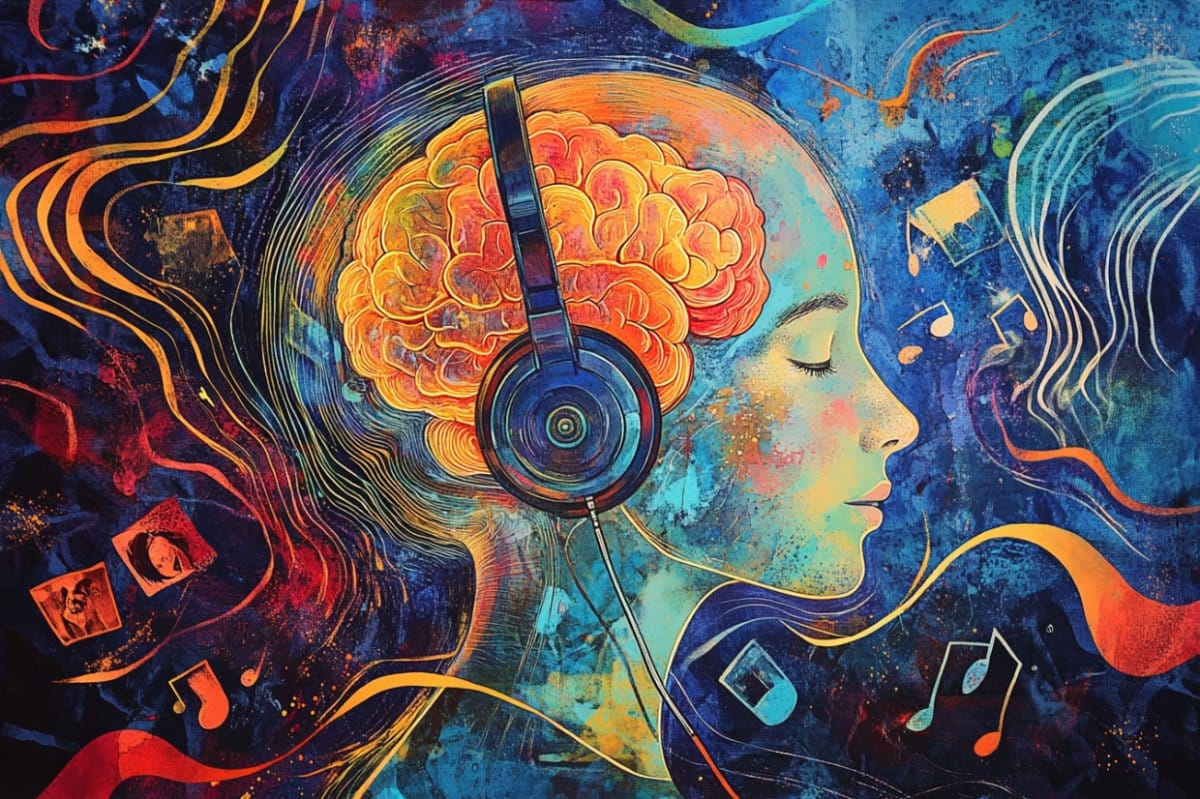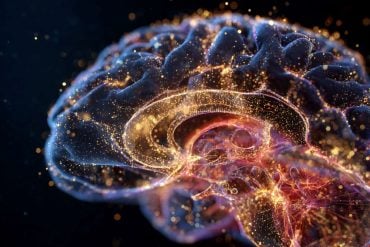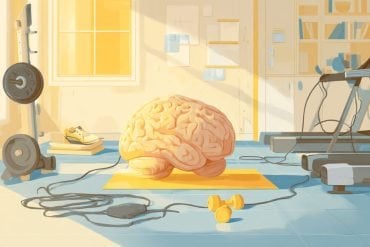Summary: A new neuroscience study reveals that music can alter the emotional content of our memories when played during recollection. Participants who listened to emotionally charged music while recalling neutral stories later remembered those stories with emotional tones matching the music.
These emotional updates persisted over time, demonstrating that music can influence the emotional reconstruction of memory. Brain scans showed increased activity and connectivity in emotion- and memory-related regions, including the amygdala and hippocampus, during music-paired recollection.
Key Facts:
- Memory Rewriting: Emotional music played during recollection altered the remembered emotional tone of otherwise neutral stories.
- Lasting Effects: One day later, participants still recalled the stories with emotional content matching the music’s valence.
- Neural Mechanisms: fMRI showed increased amygdala activity and connectivity with frontal and visual areas during emotional music recollection.
Source: Neuroscience News
Music doesn’t just move us—it may also reshape the emotions we associate with past experiences, according to a new neuroscience study.
Researchers have found that playing emotional music during memory recollection can subtly alter the content of that memory, effectively updating its emotional tone.
These changes aren’t just fleeting impressions; they can persist for days and are reflected in the brain’s emotional and memory networks.
Building on the well-established theory that memories can be updated each time they are retrieved, scientists designed a three-day experiment to explore how music might influence this process.
Participants first encoded emotionally neutral stories. Later, they were asked to recall those stories while listening to either emotionally positive or negative music. Finally, they were tested again a day later, without music, to see how their memories had changed.
The results were striking. Participants who recalled stories while listening to emotional music were significantly more likely to infuse their recollections with new emotional content that matched the tone of the music—happy music led to more positive reinterpretations, while sad music prompted more negative ones.
When tested a day later, these emotional distortions had persisted, showing that music had effectively rewritten the emotional tone of the memory.
Brain imaging during recollection showed activity in emotion- and memory-related regions, including the amygdala, anterior hippocampus, and inferior parietal lobule.
Notably, emotional music increased connectivity between the amygdala and both the frontal cortex and visual processing areas, suggesting that the brain was integrating emotional tone with visual imagery and narrative structure during recollection.
These findings shed new light on the powerful influence of music on the mind. While music’s ability to evoke emotional responses is well known, this study shows it can actively change what we remember and how we feel about it.
That has potential implications for everything from therapeutic memory reconsolidation to understanding the emotional coloring of autobiographical memories.
Whether you’re reminiscing to a nostalgic playlist or reliving heartbreak through song, your soundtrack may be shaping your memories more than you think.
About this music and emotional memory research news
Author: Neuroscience News Communications
Contact: Neuroscience News
Source: Neuroscience News Communications – Neuroscience News
Image: The image is credited to Neuroscience News
Original Research: Closed access.
“Affective music during episodic memory recollection modulates subsequent false emotional memory traces: an fMRI study” by Yiren Ren et al. Cognitive, Affective, & Behavioral Neuroscience
Abstract
Affective music during episodic memory recollection modulates subsequent false emotional memory traces: an fMRI study
Music is a powerful medium that influences our emotions and memories. Neuroscience research has demonstrated music’s ability to engage brain regions associated with emotion, reward, motivation, and autobiographical memory.
While music’s role in modulating emotions has been explored extensively, our study investigates whether music can alter the emotional content of memories.
Building on the theory that memories can be updated upon retrieval, we tested whether introducing emotional music during memory recollection might introduce false emotional elements into the original memory trace.
We developed a 3-day episodic memory task with separate encoding, recollection, and retrieval phases.
Our primary hypothesis was that emotional music played during memory recollection would increase the likelihood of introducing novel emotional components into the original memory.
Behavioral findings revealed two key outcomes: 1) participants exposed to music during memory recollection were more likely to incorporate novel emotional components congruent with the paired music valence, and 2) memories retrieved 1 day later exhibited a stronger emotional tone than the original memory, congruent with the valence of the music paired during the previous day’s recollection.
Furthermore, fMRI results revealed altered neural engagement during story recollection with music, including the amygdala, anterior hippocampus, and inferior parietal lobule.
Enhanced connectivity between the amygdala and other brain regions, including the frontal and visual cortex, was observed during recollection with music, potentially contributing to more emotionally charged story reconstructions.
These findings illuminate the interplay between music, emotion, and memory, offering insights into the consequences of infusing emotional music into memory recollection processes.








